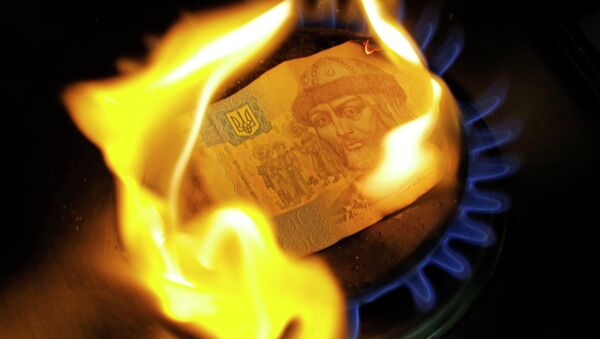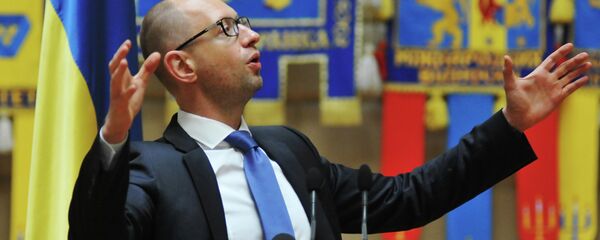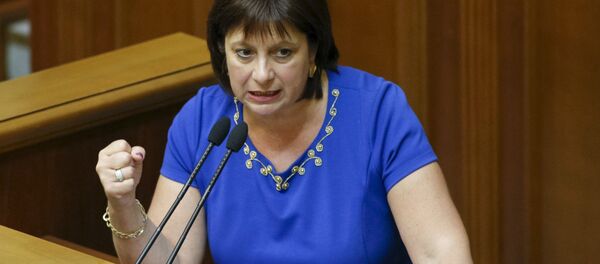On Tuesday, Financial Times columnist Martin Wolf wrote a piece where he suggested that Russia's attempts to get Ukraine to pay back its $3 billion debt constituted "blackmail."
With Ukraine trying to get Russia to join other creditors in refinancing and writing off a part of its debt, Wolf suggested that Moscow was subversively using a provision in the International Monetary Fund's rules which says that the organization cannot lend to countries with outstanding loans. Urging the West to 'stand up to Russia' and to protect reformers in Kiev, Wolf proposed that Ukraine's western allies need to find ways to lend Ukraine the money it needs, and to toughen sanctions against Moscow if it continues to 'misbehave.'
In the diplomat's view, Kiev's economic problems, including its apparent inability to repay its debts is, at its core, the result of Brussels bureaucrats' mishandling of EU policies aimed at transforming the country in the aftermath of the Maidan revolution and the signing of the EU association agreement.
Kramarenko recalled that it has long been "clear to independent observers that the cost of bringing Ukraine to EU standards by way of the association agreement (plus a deep and comprehensive free trade agreement) would be huge. [Former] President Viktor Yanukovych, when confronted with this reality, calculated it to be between $20-30 billion a year over a period of eight to 10 years, [with] the implementation of both" meaning that the country would have to "get rid of its entire industrial base dating from Soviet times."
"Against this background," the diplomat notes, "the issue of the Russian government loan looks a pittance, almost as irrelevant as the whole Western strategy of managing [Ukraine] unilaterally, in spite of and against Russia."



